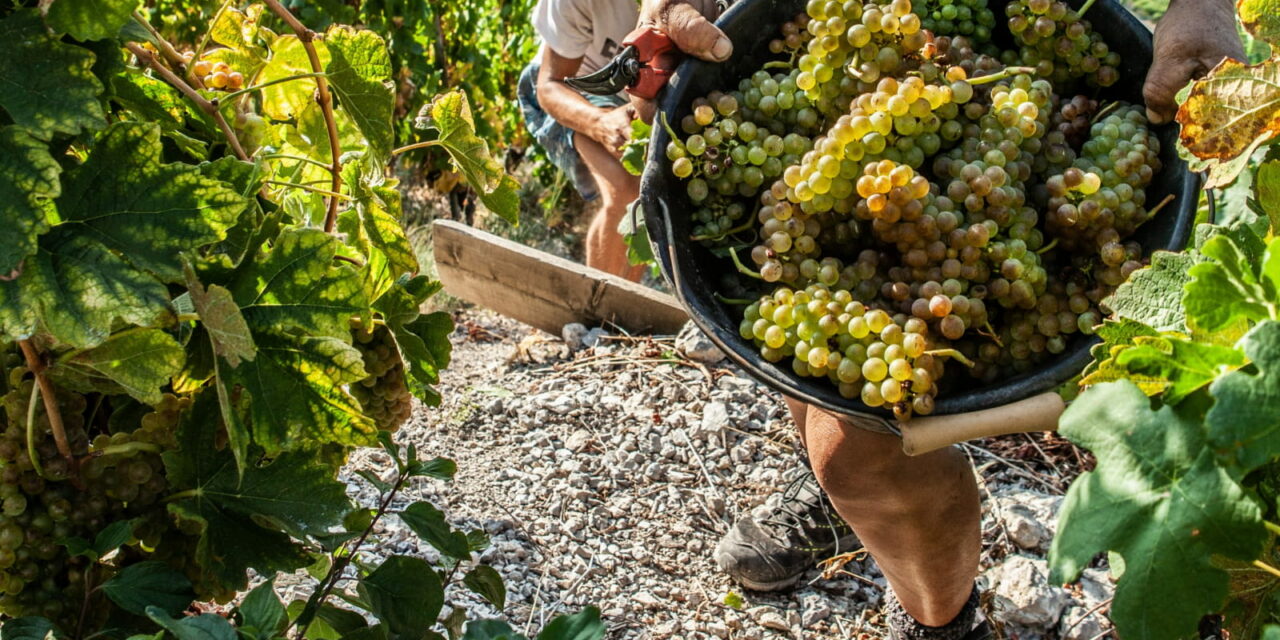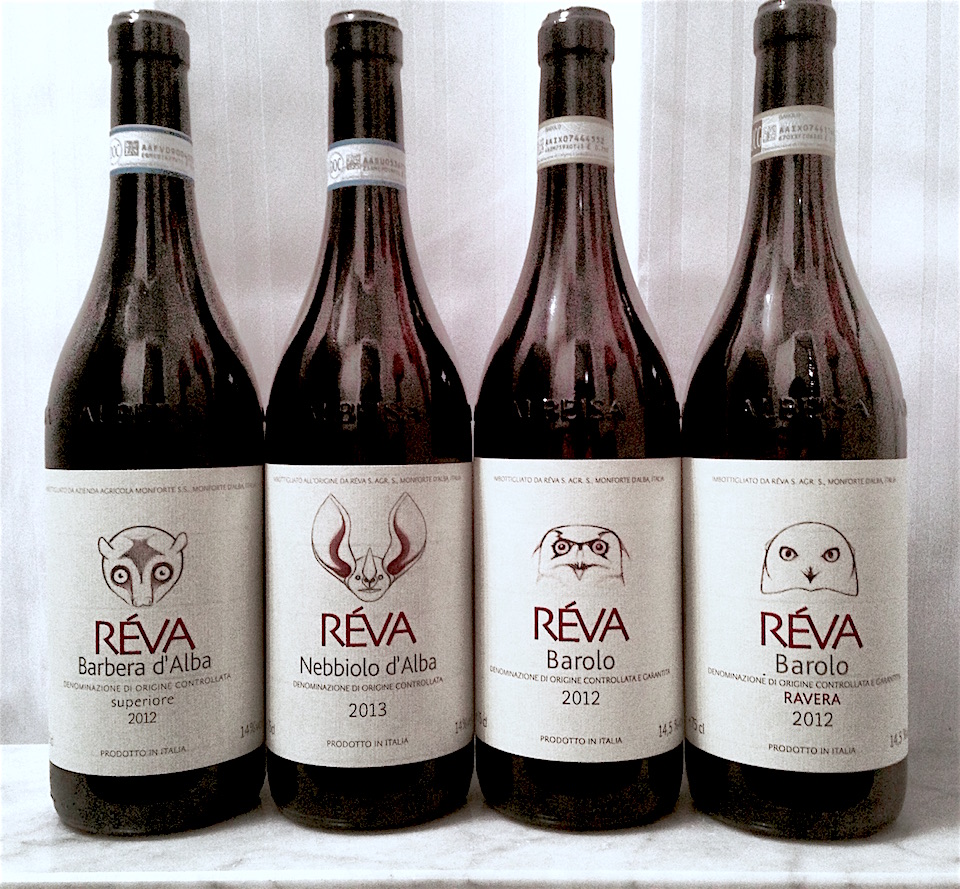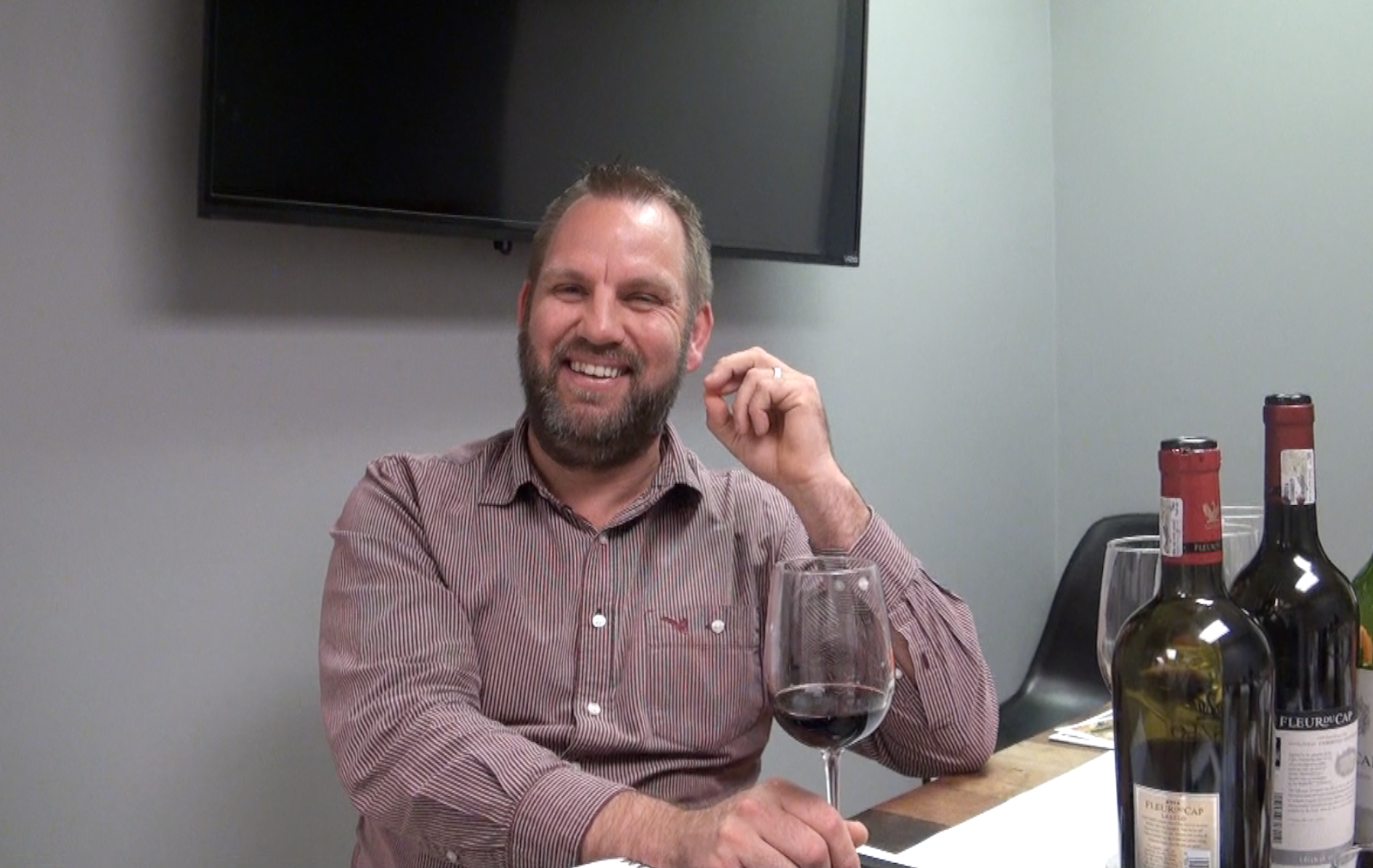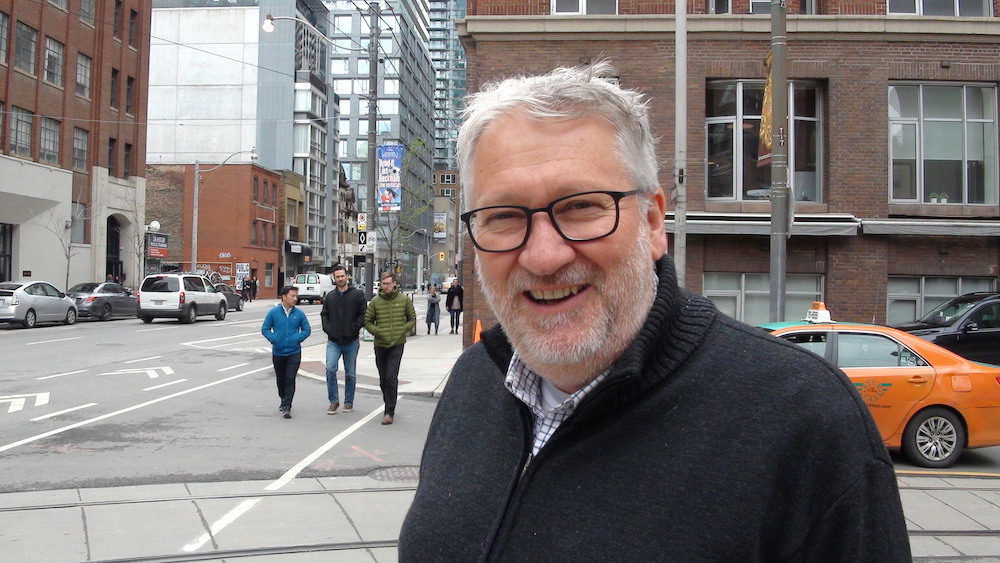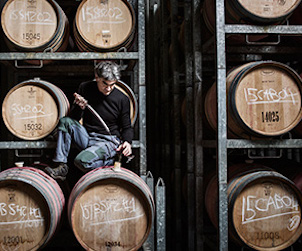The other month, we experienced a tantalising glimpse into the wonders of the wines of Savoie. After speaking to producers at the intimate walk around tasting, I felt that there were no better ambassadors for the region’s wines than the winemakers themselves.
With this in mind, I asked them a few questions about Savoie and the unique wines crafted there.
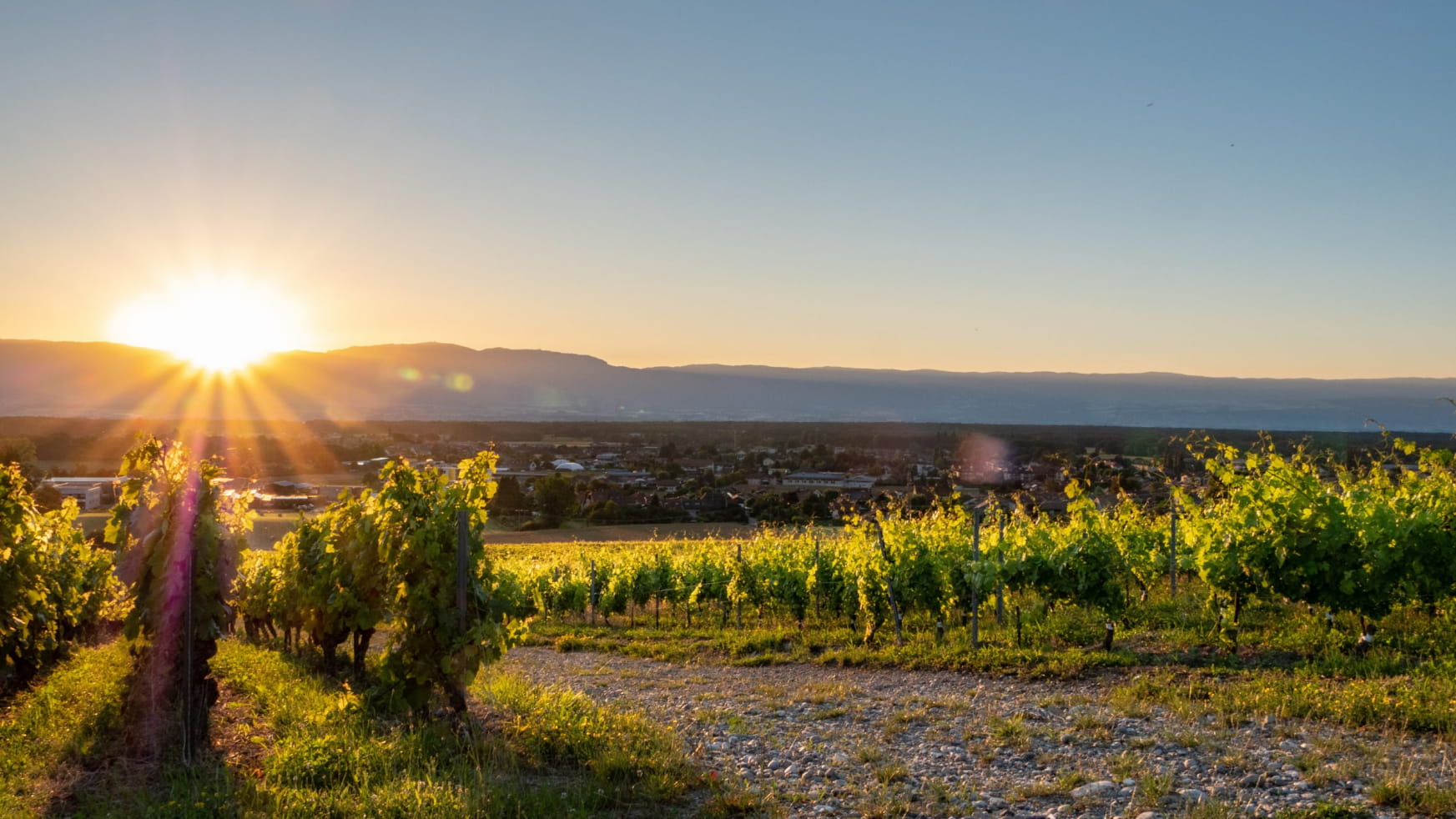
Good Food Revolution: Please describe the wines of your region.
Didier Berthollier, Denis et Didier Berthollier: Mountain and “contrast” wines in the image: – days that can reach Mediterranean temperatures and rather cool nights – steep slopes with multiple orientations: East or South East to full West – geology: glacial moraines, limestone scree, schist outcrops, clay slopes.
Gilles Berlioz, Domaine Partagé: Savoie wines, mostly single-varietal white wines, combine freshness, tension, and low alcohol levels.
Pascal Perceval, Domaine Perceval: The wine of our region is rather a dry, mineral white.
Gilles Perrier, Domaine Perrier: Certainly the most exciting wines of France, with fruitiness and freshness. Low in alcohol and made with no artifice. Savoie wines are both clean and complex.
Diane Gounel, Domaine Vendange: Savoie wines combine freshness, minerality, and originality.
Good Food Revolution: Why should people try the wines of Savoie?
Didier Berthollier, Denis et Didier Berthollier: For their freshness, their digestibility, their precision For new sensations with old grape varieties such as Persan, Douce Noire, Etraire de la D’hui…
Gilles Berlioz, Domaine Partagé: Savoie wines deserve to be known for their diversity (many endemic grape varieties) and their affordable prices in terms of quality.
Pascal Perceval, Domaine Perceval: The people should try Savoie’s wine first of all for its history, the beauty of his vineyard, and then for the increasingly qualitative work of its passionate winegrowers.
Gilles Perrier, Domaine Perrier: Because of the freshness of those wines, made with indigenous grapes. Savoie wines are amazing for their great structure, well-balanced, and refreshing flavours.
Diane Gounel, Domaine Vendange: In Savoie, there is great diversity both in the native grape varieties such as Jacquère or Altesse in white or Mondeuse in red, which are very little known, and in the terroirs.
The taste buds are awakened! Discovery guaranteed.
Good Food Revolution: What is your favourite grape to work with, and why?
Didier Berthollier, Denis et Didier Berthollier: Persan, an old Savoyard grape variety recently saved [from obscurity].
Gilles Berlioz, Domaine Partagé: The “Bergeron” grape variety (which is the Savoyard name for Roussanne), for its finesse and complexity when well worked in the vineyard.
Pascal Perceval, Domaine Perceval: My favourite grape to work with is the Jacquère, for all the possibilities of wine and taste that it can offer.
Gilles Perrier, Domaine Perrier: The grape Jacquere, because it is an indigenous grape from Savoie. Half of the vineyard is planted with Jacquere, and we are so proud to produce a unique wine that is so amazing and loved by new wine lovers.
Diane Gounel, Domaine Vendange: L’Altesse because, as its name suggests, it requires a lot of meticulousness both in the vineyard and in the cellar. It is a fragile variety with beautiful foliage that does not like any excess (water, heat, etc.). Its breeding must also be well controlled. But despite all the work it requires, it produces wines of great complexity. I like the aromatics (citrus, pear, quince, ginger, etc.) of this grape variety.
Good Food Revolution: What are the biggest challenges to making wines in Savoie?
Didier Berthollier, Denis et Didier Berthollier: Adapting the work and the vineyard to steep slopes. To make heard, beyond the seas, the small echo of our small vineyard of the bottom of our valleys…
Gilles Berlioz, Domaine Partagé: In organic and biodynamic agriculture, the big challenge is the pressure of cryptogamic diseases because Savoie can receive heavy rainfall during the season. The other challenge concerns the size of the farms; they should be able to remain on a “human scale” in order to be able to apply themselves to work in the vineyard and favour manual work over mechanical work.
Pascal Perceval, Domaine Perceval: I would say that the biggest challenge in Savoie to make wine is the prejudice about its sourness, which for a long time has been compared to vinegar.
Gilles Perrier, Domaine Perrier: Probably finish the harvest just before winter and snow. But that is no longer the case with climate change!
Diane Gounel, Domaine Vendange: We are in AB conversion (20% of the vineyard is already labelled), and we are trying as much as possible to reduce inputs in the cellar. For three years, we have ceased using sulphites during vinification; our goal is to produce more personal wines, closer to their terroir. We also do fairly long aging in different types of containers (barrels, stainless steel, concrete eggs, etc.) so that the wines can express themselves at their best.
Good Food Revolution: What is the most exciting thing happening at your winery right now?
Didier Berthollier, Denis et Didier Berthollier: Working and inventing new blends with our older grape varieties whose virtue is now to be able to re-balance grape varieties undergoing climate change (such as Roussanne).
Gilles Berlioz, Domaine Partagé: Constantly adapt. Adapt to climate change and adapt to all new technical, human, and commercial challenges. Never resting on what you have learned and trying to anticipate every day is very stimulating.
Pascal Perceval, Domaine Perceval: Right now, the most exciting thing that happens at my winery is the preparation for high season and, of course, the harvest.
Gilles Perrier, Domaine Perrier: We have been cited three times in the Top 100 Most Exciting Wines of the World by the Wine Spectator for the white wine Apremont. That was incredible and exciting.
Diane Gounel, Domaine Vendange: We created the estate in 2015. It was a blank slate, everything had to be written down both in production and sales, and it’s not over! So the variability of our work is quite exciting! We are always trying to improve and implement new techniques, and it’s quite exciting!
In closing, I asked GFR writer Dick Snyder for his take on these often enchanting wines:
Dick Snyder: “Savoie wines are superbly tuned, I think, to the current taste for crisp, light, and refreshing wines. And they have complexity and real character, too. But what I love about them is that they are entirely unique, rooted in place, and taste like no other wines in the world. I’d buy any Savoie wine I came across, no hesitation.”

